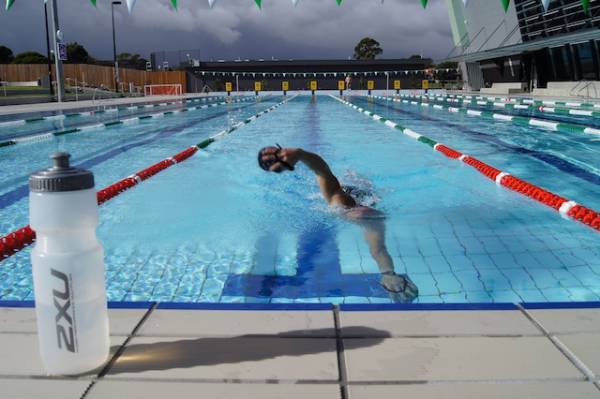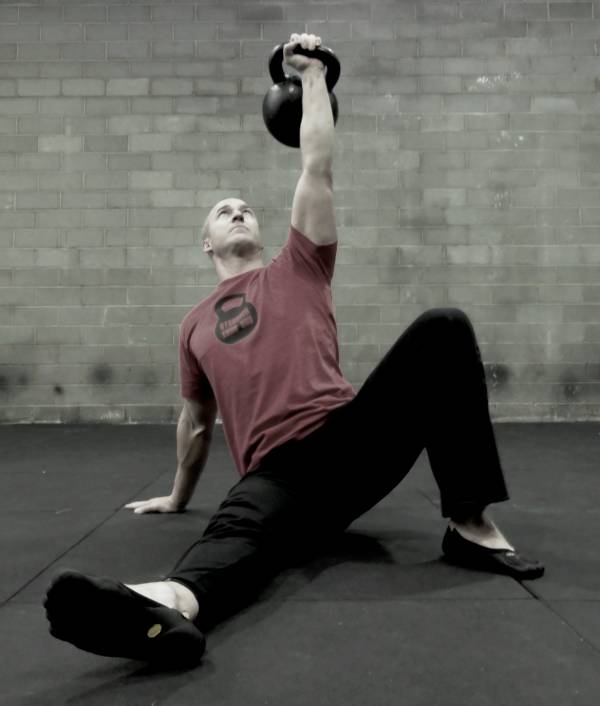When it comes to something as crazy as completing an Ironman, you really need to have done one yourself to offer advice. Our resident athletic adventurer, Andrew Read, chronicled his Ironman training plan, and it’s a wealth of information for anyone looking to complete their first big race.
After reading through all his entries, here are five essential ingredients you need to successfully train for – and complete – your first triathlon or Ironman.
1. Restraint
If you’re training for an Ironman, chances are you’re a pretty serious athlete. Which also means you enjoy the intensity of your sport and might even be dealing with lingering injuries. In order to get the most of your training, it’s necessary to go through periods of less intense activity in certain areas so you can focus on another aspects of the race. In his third journal entry, Andrew described the challenge of holding himself back to allow for recovery and get the most out of his training:
I am facing two big challenges right now:
- Continue preparing my body to cope with the REAL training that will come soon enough.
- Staving off boredom.
The first is difficult because it means that even though I feel like I could do more at times, I deliberately need to hold myself back. For instance, my normal swim sessions are about 3-3.5km in length. I could easily swim more than that each session, but I’m not sure my body has enough recovery ability to deal with that and keep me fresh for the more important running sessions.
Holding yourself back doesn’t only apply to training sessions, but also to recovery. As Andrew wrote in his fifteenth journal entry, “The recovery week is perhaps the single best kept secret of elite performance. Add it into your own training and watch your performances soar while minimizing injury.”

2. Critique
You’ll never know how to improve if you don’t have a point of comparison from which to critique yourself. Andrew explained how training with a top-ranking Australian swimmer and an Aquaman helped him better prepare, even if it resulted in the not-so-uplifting conclusion that he sucked.
Here’s my one hundred percent effective solution to reduce your self-esteem to near zero in under an hour – go train with someone who was an elite performer in that thing. So, if you play a bit of a pick-up basketball on weekends find an NBA player to have a game with. If you muddle your way through a BJJ class every now and then wrestle a black belt medal winning Mundial champ…
In a fight one wrong move is the end. In a sprint you get mere seconds to get it right. But during distance work you have time on your side. I’ve read that top ultra athletes have a saying, “It never always gets worse.” I stuck with my poor feelings, dead legs, and lack of trust in my fitness and all of a sudden things came good after two hours
in the saddle.
3. Focus
Unless you’re a professional athlete, you’ve probably got a lot of stuff going on in your life aside from Ironman training. Andrew discussed the challenge of keeping up with his training while also achieving his second goal of keeping up with the RKC standards.
The key for all this is to keep my eyes on both goals – do well at Ironman and at least maintain my strength according to RKC standards. Lifting heavier, while possible, is not only necessary it may cause other problems – shoulders fatigued from clean and jerks may not stay stable while swimming and tired and heavy legs from squatting will make running hard.
Just because I can, doesn’t mean I should. Avoiding the distraction of “fun” and adventurous training is difficult. But there will be plenty of time for that post Ironman. For now it’s keep it simple and use only the exercises that will get me the best return for the minimum time.

4. Pigheaded Stubbornness
By the time his final journal entries came along, Andrew was ready for it to be over. As he wrote in Journal Entry 37, “I’ll be honest and say that I am happy that the event is soon. Training isn’t really fun at the moment. It’s hard, draining work that leaves me useless and exhausted every day.” Thirteen training sessions a week will do that to you. Here’s some more detail from Journal Entry 35:
With thirteen sessions each week now, there’s plenty of room for good and bad. One good session can leave you uplifted for days, but a bad one can be just around the corner. They say that out of every five sessions you’ll have three mediocre ones, one good one, and one bad. That means I’ll have three bad ones each week. Three blows to the ego. Three sessions that make me doubt my ability to complete the Ironman.
On top of that there’s fatigue. Actually, make that F-A-T-I-G-U-E. This isn’t the fatigue cured by a short nap. This is the fatigue that makes you so tired you feel like crying at the thought of putting your runners on again. This is the fatigue that made me think before every single session last week, “Fuck this. I don’t need this.” Only to be met by that deep-seated sense of loathing I feel for any quitter, which pushes me out the door…
I’m not sure it’s a great lesson from this week, but pigheaded stubbornness can get you through a lot. Whether that’s worth it in the long run remains to be seen.
5. The Will to Improve
In the end, Andrew’s race was successful, not only because he completed the Ironman, but also because he accomplished his primary goal: to push himself to his limits. Completeing an Ironman was a challenge to push out of complacency and come into a new place of heightened athletic and personal development. In his final entry, Andrew summed up how he felt about the event and his training:
I got exactly what I wanted from Ironman. I wanted a challenge. A massive, scary challenge and that’s exactly what I got. I was pushed to places in my head where I doubted myself for months straight and I made it through them and not once during the race did I ever contemplate not finishing. It’s easy as we get older to become complacent, to settle and be comfortable. I wanted to know I could still rumble if I wanted to, and even though my time isn’t great it’s actually satisfying. I swam faster than I did at the 70.3 four months ago, in far worse conditions, and I ran the first half of the marathon at the same pace as at the 70.3 after double the ride too and finished the marathon at the same pace. I’ve improved and that’s what this was all about.







